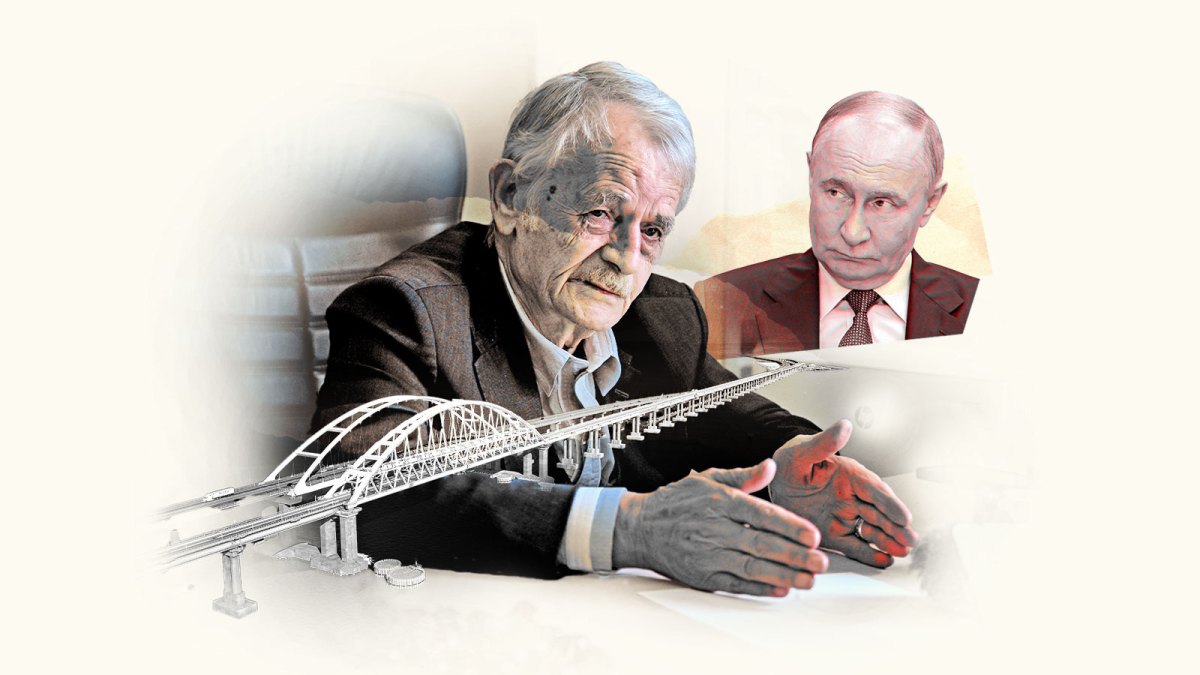Crimea Recognition: Would US Action Embolden Putin's Russia?

Welcome to your ultimate source for breaking news, trending updates, and in-depth stories from around the world. Whether it's politics, technology, entertainment, sports, or lifestyle, we bring you real-time updates that keep you informed and ahead of the curve.
Our team works tirelessly to ensure you never miss a moment. From the latest developments in global events to the most talked-about topics on social media, our news platform is designed to deliver accurate and timely information, all in one place.
Stay in the know and join thousands of readers who trust us for reliable, up-to-date content. Explore our expertly curated articles and dive deeper into the stories that matter to you. Visit Best Website now and be part of the conversation. Don't miss out on the headlines that shape our world!
Table of Contents
Crimea Recognition: Would US Action Embolden Putin's Russia?
The question of US recognition of Russia's annexation of Crimea in 2014 continues to spark intense debate. While some argue that acknowledgment would be a pragmatic step towards de-escalation, others fear it would embolden Vladimir Putin and further destabilize the region. This complex issue demands careful consideration of potential consequences, both immediate and long-term.
The Current Stalemate and the Call for Recognition:
The international community, led by the West, overwhelmingly condemns Russia's annexation of Crimea as a violation of international law and Ukraine's sovereignty. This unified stance, however, hasn't deterred Russia, and the peninsula remains under Russian control. Proponents of US recognition argue that acknowledging the de facto situation could unlock diplomatic progress, paving the way for negotiations on other conflict points in Ukraine. They suggest that continued denial of reality only serves to prolong the stalemate and hinder effective diplomacy. This perspective often points to the need for a more realistic approach to international relations, one less focused on punitive measures and more on achieving practical solutions.
The Risks of Recognition: Emboldening Putin and Further Instability
Opponents of recognition warn that such a move would send a dangerous message. It could be interpreted as a green light for further Russian aggression, potentially emboldening Putin to pursue expansionist policies in other regions, including neighboring countries. This concern is particularly acute given Russia's ongoing war in Ukraine and its history of territorial disputes. The argument rests on the premise that rewarding aggression, even tacitly, undermines the international order and encourages future violations of sovereignty.
Furthermore, recognition could severely damage US credibility and its standing as a defender of international law. It might also undermine alliances with Ukraine and other Eastern European nations, creating distrust and potentially weakening NATO's collective defense posture. The potential for escalation and further instability in the region is a major point of contention for those opposed to recognition.
Potential Consequences and Alternatives:
The potential consequences of US recognition of Crimea are far-reaching and difficult to predict with certainty. However, several key outcomes could include:
- Increased Russian aggression: This is perhaps the most significant concern. Recognition could be seen as a victory for Russia and encourage further territorial expansion.
- Damaged US credibility: The US would face accusations of hypocrisy and double standards, potentially damaging its relationships with allies.
- Weakened international norms: Recognition could set a dangerous precedent, weakening the international legal framework designed to prevent territorial seizures.
- Limited diplomatic gains: While some believe recognition could open doors for negotiation, others argue it could instead hinder progress by legitimizing Russia's actions.
Instead of recognition, alternative strategies focus on maintaining international pressure on Russia, strengthening support for Ukraine, and pursuing diplomatic solutions within the framework of international law. This includes continued sanctions, military aid to Ukraine, and engagement in multilateral diplomatic efforts.
Conclusion: A High-Stakes Decision
The decision on whether or not to recognize Russia's annexation of Crimea is a high-stakes gamble with potentially profound consequences. While proponents argue for a pragmatic approach that prioritizes de-escalation, opponents fear it would embolden Putin and destabilize the region further. A careful weighing of the potential benefits and risks is crucial, requiring a thorough understanding of the geopolitical landscape and the implications for international law and security. The debate will undoubtedly continue, but the consequences of any action – or inaction – will resonate for years to come. What is clear is that this is not simply a legal or diplomatic issue; it's a question of global security and the future of international order.

Thank you for visiting our website, your trusted source for the latest updates and in-depth coverage on Crimea Recognition: Would US Action Embolden Putin's Russia?. We're committed to keeping you informed with timely and accurate information to meet your curiosity and needs.
If you have any questions, suggestions, or feedback, we'd love to hear from you. Your insights are valuable to us and help us improve to serve you better. Feel free to reach out through our contact page.
Don't forget to bookmark our website and check back regularly for the latest headlines and trending topics. See you next time, and thank you for being part of our growing community!
Featured Posts
-
 Sinner Defeats Djokovic A Stunning French Open Semifinal Victory
Jun 08, 2025
Sinner Defeats Djokovic A Stunning French Open Semifinal Victory
Jun 08, 2025 -
 Unexpected Hollywood Visit Anchorage Ymcas Big Break
Jun 08, 2025
Unexpected Hollywood Visit Anchorage Ymcas Big Break
Jun 08, 2025 -
 Kevin Durant Next Team Odds Rockets Top Contender After Recent Developments
Jun 08, 2025
Kevin Durant Next Team Odds Rockets Top Contender After Recent Developments
Jun 08, 2025 -
 Breaking Aaron Rodgers Steelers Deal Espn Reporting
Jun 08, 2025
Breaking Aaron Rodgers Steelers Deal Espn Reporting
Jun 08, 2025 -
 Djokovic Loses To Sinner French Open Finalist Announced
Jun 08, 2025
Djokovic Loses To Sinner French Open Finalist Announced
Jun 08, 2025
